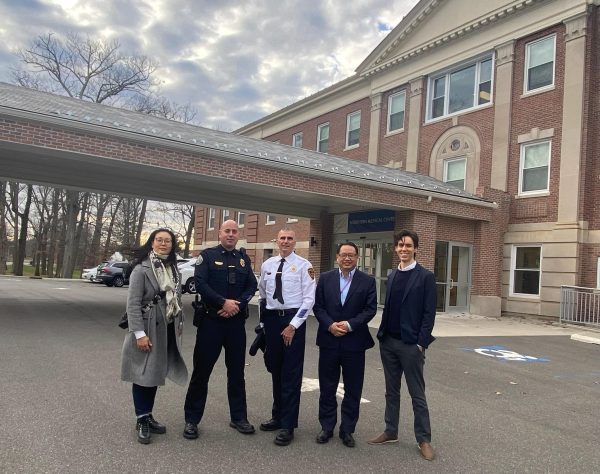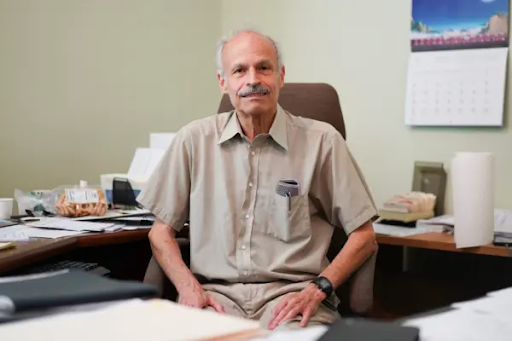This article was published on behalf of Northern Medical Center in Middletown, NY.
Despite the cold, grey skies of winter and the tempting comfort of “taking it easy” through the mid-holiday season, an upstart medical complex in Middletown, upstate New York, is “leaning in.” On Friday, Dec. 2, Northern Medical Center (NMC) staff and the local police leadership met to discuss the beginnings of a new pilot program to serve first responders in the city.
“We feel at home here in Middletown, and we really appreciate the support this town has given us”, said Dr. Robert Backer, psychologist and member of the pilot program development team, addressing Chief Ewanciw and another officer ranked lieutenant. In an intimate discussion over lunch, Dr. Backer discussed how the medical center team, including specialists in primary care, sports medicine, holistic health, psychiatry, neuroscience, and biostatistics, has been concerned about the rise of chronic health problems in the United States.
- SY Aesthetics: Where Traditional Healing Meets Modern Western Medicine
- Emotional and Spiritual Health Takes Center Stage at International Cosmetic Medicine Symposium in Middletown, NY
“Compared to other developed nations, the U.S. is far behind in many aspects of quality of life, and notably, much higher in chronic health problems. This is not due to lack of funding, however lacking preventative care and a number of lifestyle issues continually set us back. We want to change that”, Backer said.
“We’d like to start here in Middletown. We’d like to see the Middletown community become one of the healthiest towns in America, and what could be a better place to start than by serving the bedrock of our community — our first responders.”

Success
You are now signed up for our newsletter
Success
Check your email to complete sign up
Northern Medical team members discussed how many chronic diseases stem from controllable lifestyle factors, which often act to “turn on” genetic vulnerabilities or aggregate into cumulative and compounded illnesses over time. NMC presents a model for addressing these issues, taking busy modern lifestyles into account.
“Our specialists have put a great deal of thought into what makes a person healthy,” explained Dr. Backer, and went on to describe a four-dimensional model of health, encompassing “physical, biochemical, energetic, and soul”.
Starting in 2023, as many begin their New Year’s resolutions, NMC’s pilot program will help local policeman make some important changes, which the Department and NMC hope can provide practical solutions to the numerous challenges lawmen face regularly in their lives. Recent studies have shown that first responders regularly face long and odd hours, bursts of intense and stressful physical activity, occupational and organizational pressures, and a variety of other stressors.
Owing to this, incidence of disease is higher among police and other first responders than the general population — in particular, cardiovascular issues. Mental health is also a real priority. An alarming 85 percent of first responders have experienced mental health issues, and depression and PTSD are five times more common.
“In recent years, much-needed attention has finally been given to addressing challenges police face, we know there’s a problem. But, until now, no one has really offered a solution,” Ewanciw said.
His colleague, the lieutenant, added, “what was presented in this program is exactly what we need, it hits all of the most common complaints we hear day in and day out.”
NMC will provide a comprehensive program designed to help police optimize their health in busy, everyday life. The Center hopes to expand the program in the future, and to make an impact on raising awareness about intelligent, empirically-valid, and practical ways to raise quality of life nationwide.
NMC CEO Dr. Jingduan Yang stated, “we need to treat the human being as a holistic system. It’s not just one problem with your back, or your sleep, or your metabolism. It’s not something you just take a pill for. In reality everything is interrelated — from the cells of your body, to the electrochemical functioning of your subatomic particles, and beyond, to your soul at a fundamental level. That is how we view medicine at the center, and that is the perspective we’d like to contribute to the field of medicine.”















